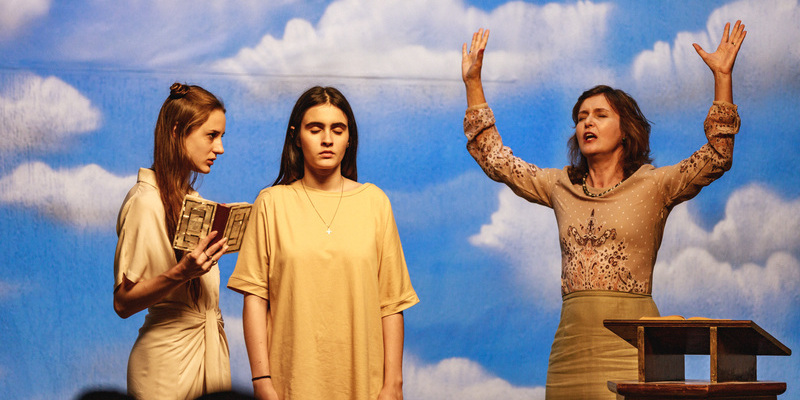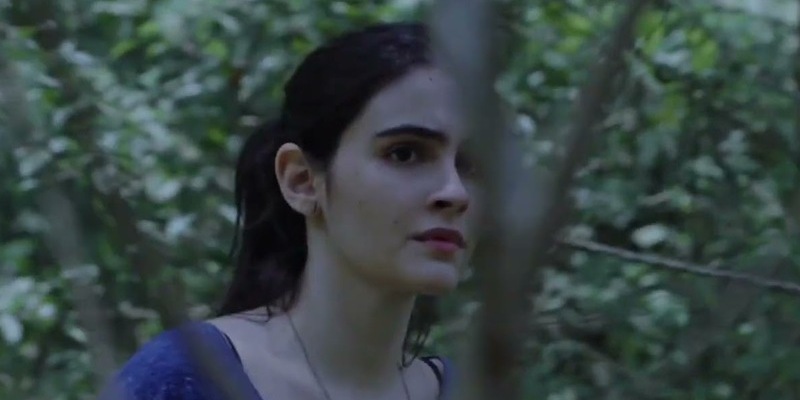
Review by
Eric Hillis
Directed by: Mariana Bastos
Starring: Valentina Herszage, Emilio de Mello, Priscila Bittencourt, Eduarda
Samara, Ravel Andrade

If David Cronenberg had adapted Stephen King's
Carrie
rather than Brian de Palma, it might have resembled something like
director Mariana Bastos's Raquel 1:1. Body horror mixes with dark coming-of-age metaphors while critiquing
religion, in particular its misogynistic attitudes to women.

Following the initially ambiguous death of her mother, teenager Raquel
(Valentina Herszage) and her father (Emilio de Mello) move
back to the latter's hometown in rural Brazil, reopening the family's
small convenience store. Raquel falls in with a group of teenage girls,
who initially seem like any girls of that age, enjoying sleepovers,
eyeballing cute boys and dancing in clubs, but they belong to a local
evangelical church. Raquel joins the church, much to her agnostic
father's displeasure, and finds kinship among its members.
But Raquel is troubled by how many of the Bible's words denigrate
women. In crude but effective fashion, Bastos fills the sound mix with
spoken passages of shocking misogynist sentiments lifted directly from
"the Good Book," among them the instruction that a woman should be
stoned to death if she dares to commit adultery.

When Raquel brings this up with her friends, the group's ringleader,
Ana Helena (Priscilla Bittencourt), shuts down such awkward talk
immediately. Later that night however, Raquel receives a text from
another girl, Laura (Eduarda Samara), who tells her that she and
some of the other girls have had the same thoughts but haven't dared
speak them. With Raquel as their new messiah, the girls set about
rewriting the Bible, making enemies of the town's traditionalists.
That setup in itself would make for a compelling drama, but Bastos
confuses things by adding supernatural and body horror elements to the
mix. Such additions are never really delved into and come off as
unnecessary genre dressing on what is otherwise a relatively straight
drama. There's an abandoned building in the woods that seems to exert a
sort of Hanging Rock influence on the girls, but Bastos never fully
explores this idea. The same goes for the stigmata like wounds that
begin to appear on Raquel's torso.

Perhaps it's a symptom of religion's misogynistic hold in Brazil that
Bastos felt the need to wrap her story of defiance in such thin horror
dressings. But rather than a horror movie that serves as an allegory,
Raquel 1:1 plays like an allegory desperate to convince us
it’s a horror movie.


